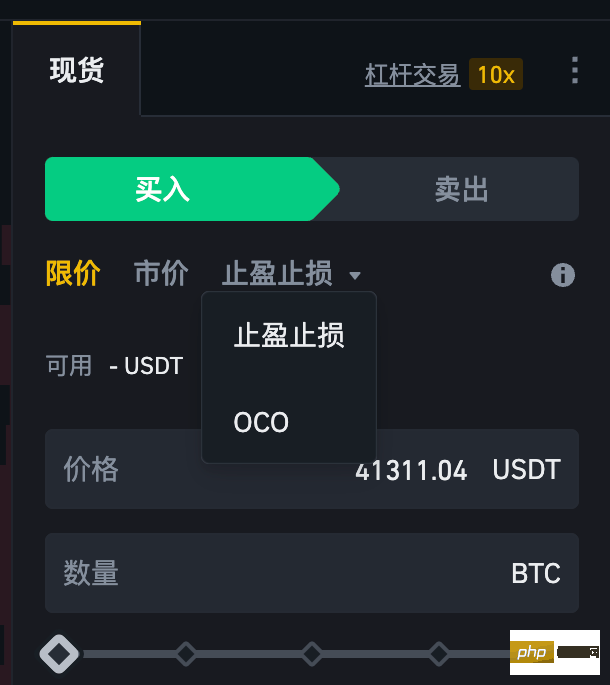 web3.0
web3.0 Opinion: Three major changes that will occur in the virtual asset market after the Korean parliamentary election
Opinion: Three major changes that will occur in the virtual asset market after the Korean parliamentary electionCompiled by: Felix, PANews
According to the recent election results of South Korean parliamentarians, South Korea’s ruling party suffered a disastrous election defeat among all 300 seats, while the largest opposition Democratic Party and its satellite parties won a total of 175 seats seats. Therefore, some people predict that in the next four years (the term of the National Assembly), South Korea's main regulations will shift from conservative legislation to progressive legislation. In light of the election results, here’s a breakdown of potential market changes based on the Democratic Party’s campaign promises.
During the campaign, the Democratic Party of Korea made various promises to revitalize the digital asset market. Most importantly, the party focuses on stimulating the virtual asset market through measures such as the listing of Bitcoin ETFs and reducing the tax burden on individual investors. This means that individual investors can invest in virtual assets in a more favorable environment.
The Common Democratic Party’s commitments related to the cryptocurrency field:

韩国共同民主党第22次大选誓言,来源:韩国共同民主党
The Common Democratic Party’s main commitments focus on:
- Promotion The listing of Bitcoin spot ETF
- Reducing the tax burden on individual investors’ crypto investments
- Institutionalizing the crypto market and strengthening investor protection
Policies of the Common Democratic Party The direction focuses on promoting the growth of the crypto market while strengthening investor protection to improve the health of the market. If the promise is fulfilled, it is expected to create a safer and more convenient environment for retail investors to invest in cryptocurrency within the institutional framework.
Bitcoin ETF listing and institutionalization of tokenized securities
The Common Democratic Party said it will allow the issuance, listing and trading of spot Bitcoin ETFs. This will provide opportunities for mainstream virtual assets, including Bitcoin, to be incorporated into the existing financial system, similar to U.S. ETFs. In addition, the party plans to legislate the issuance, sale and disclosure system of tokenized securities to promote the adoption of blockchain in traditional financial markets.
Although Bitcoin spot ETFs and security tokens have been discussed before, progress has been slow. It’s been a year since the guidelines for security tokens were released, but they have yet to pass Congress. Whether the Democrats can accelerate this pace will be interesting to watch.
Rationalization of virtual asset taxation and loss deduction
The Democratic Party announced that it will significantly increase the tax-free threshold for virtual asset investment from the current US$2,000 to US$40,000. It is expected to significantly reduce the tax burden of small-scale investors. At the same time, the Democratic Party plans to introduce loss offsets and a five-year loss carryforward deduction for losses incurred from investments in virtual assets. These tax incentives will encourage individual investors to participate more actively in the virtual asset market.
The ruling party urges postponement of cryptocurrency tax. Although the government and parliament have postponed the implementation date of cryptocurrency taxation to January 2025, judging from the election results, further extension is unlikely.
The Democratic Party of Korea also insists on implementing the financial investment income tax as scheduled next year. The financial investment income tax is a 20% tax on income from stocks exceeding KRW 50 million (approximately US$36,500) and income from overseas stocks exceeding KRW 2.5 million (approximately US$1,800). Since the tax burden in the crypto market is relatively low, there is the possibility of capital inflows into the crypto market.
Restrict large-scale exchanges and strengthen investor protection
The Democratic Party of Korea has also proposed plans to restrict large-scale exchanges, such as consolidating the order books of small exchanges and commoditizing trading services. Indonesia’s nationalized exchanges have previously implemented similar actions. This move aims to prevent excessive concentration of trading on the exchange and improve market fairness. These policies are expected to have a significant impact on the market, especially in South Korea, where Upbit has long held approximately 80% of the crypto exchange market.

来源:DAXA
In addition, the Democratic Party plans to introduce a "blue listing" system to protect investors. The system only allows high-quality virtual assets to be listed. This initiative is similar to the “white/green list system” adopted by the Japan Virtual Asset Exchange Association (JVCEA) to provide a framework for vetting crypto assets. Under the new system, asset screening will be conducted through independent third-party institutions such as the Korean Exchange, improving the transparency of crypto asset listings.
This policy is regarded as a necessary measure for the long-term healthy development of the Korean encryption market. Currently, there is a self-regulatory organization focused on Korean won exchanges - the Digital Asset Exchange Association (DAXA). Therefore, it remains to be seen how these institutions will relate to the Democratic Party.
Conclusion
How the "Virtual Asset User Protection Law" and other legislation will be implemented in July deserves attention. If the Minjoo Party’s commitment is successfully implemented, the Korean crypto market is expected to get rid of its current ambiguity and have clearer and more organized rules.
In addition, it is expected to promote the adoption of blockchain by traditional financial institutions, such as token securities and crypto ETFs, which have been slower to adopt compared to other countries. If various investment and business opportunities and investor-friendly policies are provided to create a sound and safe environment, it will contribute to the future revitalization of the Korean virtual asset market.
The above is the detailed content of Opinion: Three major changes that will occur in the virtual asset market after the Korean parliamentary election. For more information, please follow other related articles on the PHP Chinese website!
 区块链只能用go语言吗Dec 27, 2022 pm 05:25 PM
区块链只能用go语言吗Dec 27, 2022 pm 05:25 PM不是。区块链是一种编程思想,原则上使用任何一种编程语言都可以实现,比如Solidity、C++、C#、Java、javascript、Go都可以实现区块链的开发;区块链技术涉及的面很广,而编程语言只是一种手段,把设计理念用代码呈现出来,做成产品服务用户。
 什么是OCO订单?Apr 25, 2023 am 11:26 AM
什么是OCO订单?Apr 25, 2023 am 11:26 AM二选一订单(OneCancelstheOther,简称OCO)可让您同时下达两个订单。它结合了限价单和限价止损单,但只能执行其中一个。换句话说,只要其中的限价单被部分或全部成交、止盈止损单被触发,另一个订单将自动取消。请注意,取消其中一个订单也会同时取消另一个订单。在币安交易平台进行交易时,您可以将二选一订单作为交易自动化的基本形式。这个功能可让您选择同时下达两个限价单,从而有助于止盈和最大程度减少潜在损失。如何使用二选一订单?登录您的币安帐户之后,请前往基本交易界面,找到下图所示的交易区域。点
 go语言能开发区块链吗Jan 03, 2023 pm 01:41 PM
go语言能开发区块链吗Jan 03, 2023 pm 01:41 PM可以开发。区块链是一种编程思想,原则上使用任何一种编程语言都可以实现,比如go语言、Solidity、C++、C#、Java、javascript都可以实现区块链的开发。Go语言是为了解决分布式计算,而区块链是典型的分布式数据存储系统,因此go语言能开发区块链。且Go易学易用,能很好的满足区块链行开发需要的“执行效率高、高并发、跨平台,网络开发要求高”等特点。
 为什么用go语言写区块链Mar 04, 2021 pm 03:42 PM
为什么用go语言写区块链Mar 04, 2021 pm 03:42 PM原因:1、Go语言具有部署简单、性能优秀、并行执行性能好、良好语言设计、内置大量库、团队牛逼等优势。2、以太坊和超级账本都选择使用Go作为开发语言;这两大超级区块链的影响力很大,不仅在生态中占据了大的坑位,事实上还隐性的制定了区块链的标准。
 Java 中的区块链和加密货币技术Jun 09, 2023 am 09:56 AM
Java 中的区块链和加密货币技术Jun 09, 2023 am 09:56 AMJava是一种广泛使用的编程语言,它被许多公司和组织用作开发各种应用程序的工具。最近几年来,区块链和加密货币技术在全球范围内引起了大量的关注。Java的灵活性和多功能性使得它成为开发区块链和加密货币应用程序的优秀选择。区块链技术是一种安全的、去中心化的数据库,它可以存储和共享交易记录,而无需任何中央机构的干涉。Java提供了许多区块链开发框架,例如H
 深入学习区块链的Go语言开发框架Jun 04, 2023 pm 08:01 PM
深入学习区块链的Go语言开发框架Jun 04, 2023 pm 08:01 PM区块链技术的出现,使得数字货币的应用成为可能,也在许多领域得到了广泛应用。随着区块链技术领域的扩大,开发人员对于更好的应用程序编写方式的需求也高涨起来。于是,一个叫做Go语言(简称Golang)的编程语言悄悄兴起,成为了区块链开发人员的最爱。Go语言是谷歌公司开发的一种系统级编程语言,自诞生以来,一直着重强调程序设计的简捷和高效。Go语言的优点包括:静态类型
 打造高效的区块链技术开发环境(使用Go语言)Jun 05, 2023 am 08:21 AM
打造高效的区块链技术开发环境(使用Go语言)Jun 05, 2023 am 08:21 AM随着区块链技术的发展和应用越来越广泛,有越来越多的人开始参与到区块链技术的开发中来。而要想打造高效的区块链技术开发环境,选择合适的开发语言和工具是非常重要的。Go语言正是一个很好的选择,因为它的性能很高,同时还有很多优秀的开源工具和库,能够大大提高开发效率。下面就来介绍一下如何打造高效的区块链技术开发环境,使用Go语言进行开发。一、选择Go语言在选择开发语言
 如何利用Go语言实现全球唯一的区块链身份标识Jun 04, 2023 pm 03:51 PM
如何利用Go语言实现全球唯一的区块链身份标识Jun 04, 2023 pm 03:51 PM区块链是一种去中心化的分布式账本技术,随着其应用领域的不断扩展,如何保障区块链参与者的身份安全问题也逐渐成为热门话题。本文将介绍如何利用Go语言实现全球唯一的区块链身份标识。一、为什么需要区块链身份标识在现有的互联网世界中,身份验证是一个非常重要的问题。通过用户名和密码等方式,用户可以登录到我门的网站上,从而使用我们的服务。但是,在互联网上,身份验证存在着

Hot AI Tools

Undresser.AI Undress
AI-powered app for creating realistic nude photos

AI Clothes Remover
Online AI tool for removing clothes from photos.

Undress AI Tool
Undress images for free

Clothoff.io
AI clothes remover

AI Hentai Generator
Generate AI Hentai for free.

Hot Article

Hot Tools

ZendStudio 13.5.1 Mac
Powerful PHP integrated development environment

EditPlus Chinese cracked version
Small size, syntax highlighting, does not support code prompt function

MantisBT
Mantis is an easy-to-deploy web-based defect tracking tool designed to aid in product defect tracking. It requires PHP, MySQL and a web server. Check out our demo and hosting services.

SublimeText3 Linux new version
SublimeText3 Linux latest version

mPDF
mPDF is a PHP library that can generate PDF files from UTF-8 encoded HTML. The original author, Ian Back, wrote mPDF to output PDF files "on the fly" from his website and handle different languages. It is slower than original scripts like HTML2FPDF and produces larger files when using Unicode fonts, but supports CSS styles etc. and has a lot of enhancements. Supports almost all languages, including RTL (Arabic and Hebrew) and CJK (Chinese, Japanese and Korean). Supports nested block-level elements (such as P, DIV),





